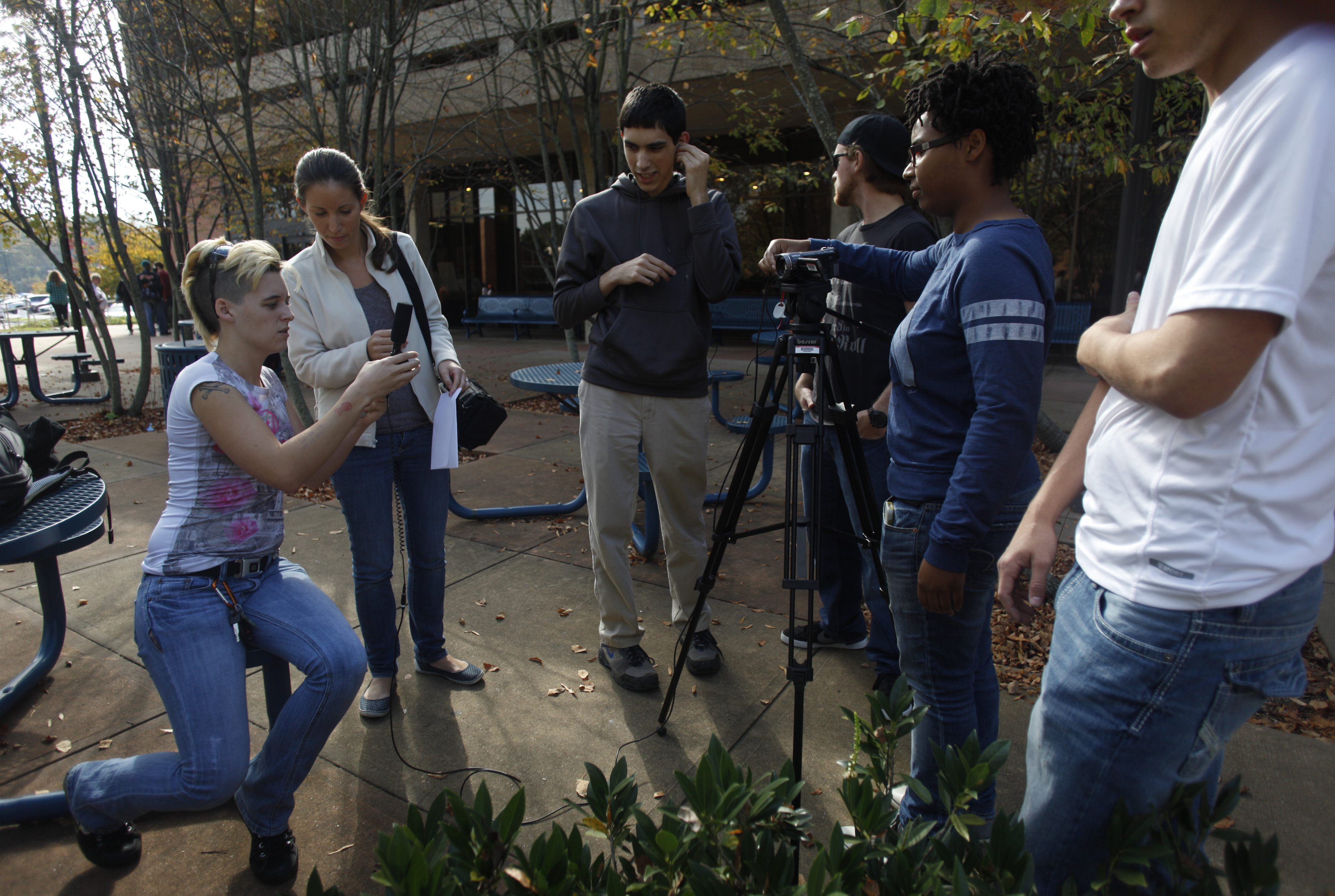2-YEAR VS 4-YEARPublic two-year college enrollment as a percentage of public four-year college enrollment:* Northeast: 81 percent* Midwest: 94 percent* South: 99.5 percent* West: More than 100 percentSource: Joe Marks, director of education data services at the Southern Regional Education BoardBY THE NUMBERSCollege enrollment* 407,599: Total college students in Tennessee* 96,777: Tennessee Board of Regents community colleges* 96,669: Tennessee Board of Regents universities* 70,822: Propriety, for-profit schools* 76,017: Independent colleges and universities* 49,400: University of Tennessee schoolsSource: Tennessee Higher Education Commission
The number of community college students is expected to surpass the number of students enrolled at four-year universities for the first time in the South.
Community college enrollment has grown from about 500,000 in 1970 to 2.8 million in 2010, according to the Southern Regional Education Board. Four-year college enrollment has grown from 1.2 million to 2.8 million over the same period.
When data from 2011 are compiled and analyzed, it's likely that two-year college enrollment will exceed four-year enrollment in the South, according to Joe Marks, director of education data services for the board.
The enrollment gap between two-year and four-year schools has been closing gradually for decades, but it accelerated slightly with the Great Recession.
The cost of in-state university tuition has climbed 120 percent, from $2,813 on average in 2000 to $6,190 in 2010, putting a university diploma out of reach for many.
Though community college tuition also has increased over the decade, it still remains significantly lower, at $3,211 in Tennessee, according to state data.
In Tennessee, though overall community college enrollment has declined this year, two-year schools have made significant increases over the decade. State community college enrollment rose about 27 percent since 2001. Universities have risen only 16.4 percent in the same time period, according to Tennessee Higher Education Commission data.
Monica Greppin-Watts, communications director at the Tennessee Board of Regents, said the same thing happened throughout the regents system.
"The severity of this economic downturn created enrollment increases much higher than the norm during previous recessions for community colleges, including a strong demand for workforce training," she said.
Two-year colleges have evolved from their start as general education programs for students planning to transfer to four-year institutions. Now their programs train and educate people based on community and workforce needs.
With industries such as Volkswagen and Wacker moving into the Chattanooga area, Chattanooga State Community College has developed job training programs to keep up with demand.
The college has expanded many of its programs, particularly in business, information technologies and engineering.
After speaking with business leaders, the business department developed programs in health services management, digital media design and production and international business (which will start next fall). New courses in information technologies include mobile application development, content management systems and Statistical Analysis System programming.
"It's just a practical blend of targeted job-related programming," said Eva Lewis, Chattanooga State's associate vice president of institutional effectiveness and research. "People say, 'I can get my basic degree and then figure out what I want to do.' This gives them a chance to do that in a less expensive environment."
This year, Cleveland State Community College had its second-largest fall class ever.
Michael Stokes, vice president of student services at Cleveland State, attributes the growth to an increase in recent high school graduates, online enrollment and dual enrollment of high school students in college courses.
In addition to affordability and focus on job skills, changes at the state level may also influence students' decisions to enroll at community colleges, Stokes said.
The Tennessee Board of Regents approved policy changes that would recognize the grade of "D" and restart grade point averages upon transfer at all TBR institutions beginning in 2014. That may make it more desirable for students to begin their education at two-year institutions.
"The community college mission was to provide a range of education services different from a four-year college," Marks, director of education at the SREB, said. "There's a wide range of community needs that the community colleges were designed to serve, and they've been successful."
